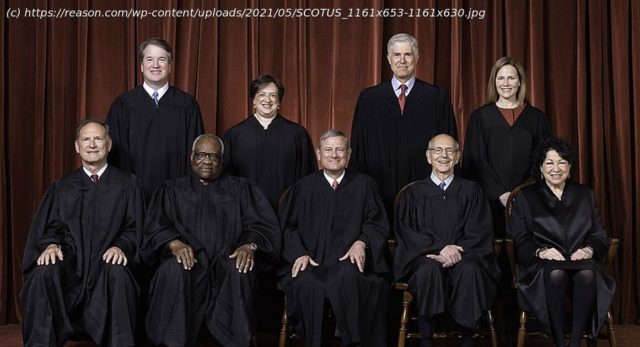Bad news for hundreds of imprisoned defendants in Louisiana and Oregon
The Supreme Court ruled 6–3 today that a previous decision—one forcing an end to non-unanimous jury verdicts in criminal trials—shall not be made retroactive. Today’s decision, in Edwards v. Vannoy, answered a question posed by 2020’s ruling in Ramos v. Louisiana: If the Supreme Court decides that non-unanimous jury decisions are unconstitutional, do all of those convictions need to be tossed out and the cases retried? The defendant in this case, Thedrick Edwards, was convicted in 2007 of rape, armed robbery, and kidnapping. But two jurors voted to acquit. It was not a unanimous decision. Edwards asked and the Supreme Court agreed to consider whether the Ramos decision was retroactive. Today, the Supreme Court majority ruled that it was not. Fundamentally this means that people convicted in Louisiana and Oregon, the only two states that have recently permitted non-unanimous convictions, can’t turn to the federal government to request relief. (Louisiana citizens voted to end the practice in 2018.) It’s harsh. As the majority opinion, written by Justice Brett Kavanaugh, explains, the Supreme Court almost never makes its rulings on criminal justice issues retroactive to affect those who have already been sentenced. A 1989 precedent, set in Teague v. Lane, set up guidelines for when the Court would consider making a decision on criminal procedure retroactive. Since setting up that test, the Supreme Court has declined to make a single new criminal justice procedural rule retroactive. The pivotal question the court considers in the Teague doctrine is whether a change counts as a «watershed» rule of criminal procedure. That means, first, that the rule must be necessary to prevent «an impermissibly large risk of an inaccurate conviction.» And second, the rule must change the justice system’s «understanding of the bedrock procedural elements essential to the fairness of a proceeding.» While one might reasonably conclude that requiring all jury convictions be unanimous would fit the above categories, the majority (all the conservative justices: Kavanaugh, Clarence Thomas, Neil Gorsuch, Samuel Alito, Amy Coney Barrett, and Chief Justice John Roberts) concluded it did not.
Домой
United States
USA — Criminal Supreme Court Won't Make Ban on Non-Unanimous Jury Convictions Retroactive






